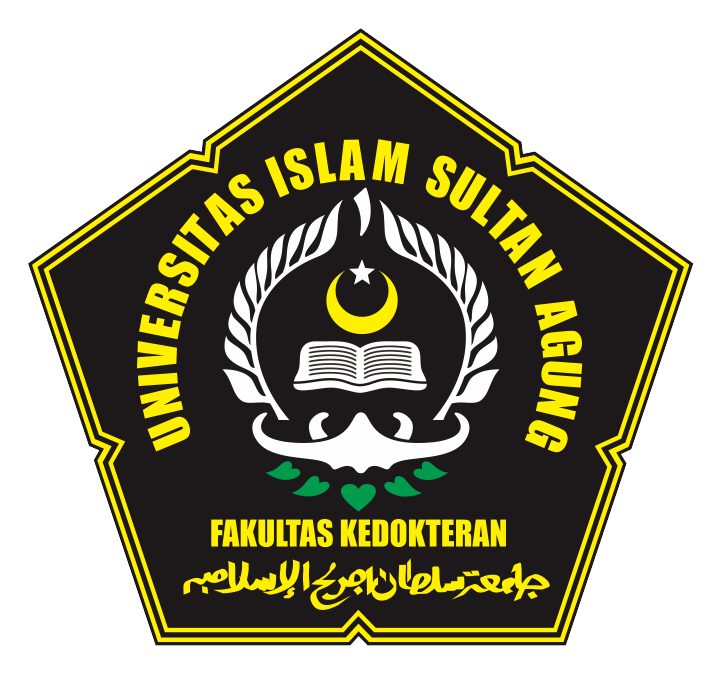Biochemistry Department, Postgraduate Program of Biomedical Sciences,
Faculty of Medicine, Sultan Agung Islamic University, Semarang - Indonesia
Ramadan Fasting, Health, and Autophagy: Is There any Relationship?
Fasting, the voluntary abstinence from food intake for a certain period of time is a well-known practice in relation with spiritual purposes (Trepanowski, JF, 2010). Ramadan fasting (RF) is an obligation of Muslim across the world during the entire holy month of Ramadan. In this specified period, Muslim every day from dawn to dusk are prohibited to eat, drink, and sexual relation, by which Muslim seek an enhanced level of closeness to God (Alloh). This testament is referenced in the verse of Al Baqoroh 183 of Holy Qur’an: “O you who believe! Fasting is prescribed for you, as it was prescribed for those before you, that you may become righteousâ€. In addition to closeness, RF in the Islamic perspective also believed capable of improving human health as prophet of Mohammad (peace be upon him) said that “fasting makes you healthierâ€. However, to the benefit of RF during the entire month of Ramadan on health remain circumstantial. There is germane question regarding RF, whether or not RF can elicit benefits or otherwise will compromise health status and physical activity performances in fasted people, considering total calorie and fluid intake were reduced (Aziz AR, et al. 2012; Bouhlel E, et al. 2006). Accordingly, in the last two decades, the health effects of RF have recently been the subject of scientific research, not only in health outcome (Trepanowski, JF, 2010; Moro T, et al. 2016), but also in exercise performance (Aziz AR, et al. 2012).
Keywords: Ramadan Fasting; Health; Autophagy
- Aksungar FB, Eren A, Ure S, Teskin O, Ates G. 2005. Effects of intermittent fasting on serum lipid levels, coagulation status and plasma homocysteine levels. Ann Nutr Metab. 49: 77-82.
- Aziz AR, Chia MY, Low CY, Slater GJ, Png W, Teh KC. 2012. Conducting an acute intense interval exercise session during the Ramadan fasting month: what is the optimal time of the day? Chronobiol Int. 29:11; 39-50.
- Aziz AR, Slater G, Chia MYH, Teh KC. 2012. Effects of Ramadan fasting on training induced adaptations to a seven-week high-intensity interval exercise programme. Science & Sports. 27: 31-38.
- Bouhlel E, Salhi Z, Bouhlel H, Mdella S, Amamou A, Zaouali M, et al. 2006. Effect of Ramadan fasting on fuel oxidation during exercise in trained male rugby players. Diabetes Metab. 32: 617-24.
- Chen Y, Klionsky DJ. 2011. The regulation of autophagy – unanswered questions. Journal of Cell Science 124 (2): 161-170.
- El Ati J, Beji C, Danguir J. 1995. Increased fat oxidation during Ramadan fasting in healthy women: an adaptative mechanism for body-weight maintenance. Am J Clin Nutr. 62:302-307.
- Ho KY, Veldhuls JD, Johnson ML, Furlanetto R,Evans WS, Alberti KGMM, Thomer MO. 1998. Fasting Enhances Growth Hormone Secretion and Amplifies the Complex Rhythms of Growth Hormone Secretion in Man. J. Clin. Invest. 81: 968-975.
- Klionsky DJ. 2008. Autophagy revisited: A conversation with Christian de Duve. Autophagy 4: 6; 740-743.
- Liang, C. 2010. Negative regulation of autophagy. Cell Death Differ. 17(12): 1807–1815.
- Longo VD, Mattson MP. Fasting: molecular mechanisms and clinical applications. 2014. Cell Metab. 19:181–92.
- Mattson MP, Wan R. 2005. Beneficial effects of intermittent fasting and caloric restriction on the cardiovascular and cerebrovascular systems. J Nutr Biochem. 16:129-137.
- Mehrpour M, Botti J, Codogno P. 2012. Mechanisms and regulation of autophagy in mammalian cells. Atlas Genet Cytogenet Oncol Haematol. 16(2): 165-182.
- Moro T., Tinsley G, Bianco A, Marcolin G, Pacelli QF, Battaglia G, et al. 2016. Effects of eight weeks of time‑restricted feeding (16/8) on basal metabolism, maximal strength, body composition, inflammation, and cardiovascular risk factors in resistance‑trained males. J Transl Med 14:290; 1-10.
- Spindler S.R. 2010. Biological Effects of Calorie Restriction: Implications for Modification of Human Aging. In: Fahy G.M., West M.D., Coles L.S., Harris S.B. (eds) The Future of Aging. Springer, Dordrecht. pp 367-438.
- The Nobel Assembly at Karolinska Instituet (NAKI). 2016. The Nobel Assembly at Karolinska Institutet has today decided to award the 2016 Nobel Prize in Physiology or Medicine to Yoshinori Ohsumi for his discoveries of mechanisms for autophagy.
- Trepanowski JF, Bloomer RJ. 2010. The impact of religious fasting on human health. Nutrition Journal, 9:57; 1-9.
 Copyright (c) 2018 Sains Medika: Jurnal Kedokteran dan Kesehatan
Copyright (c) 2018 Sains Medika: Jurnal Kedokteran dan Kesehatan

This work is licensed under a Creative Commons Attribution 4.0 International License.
